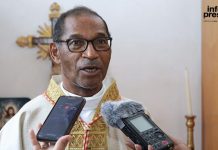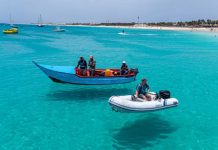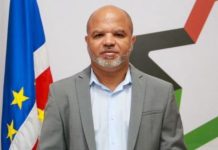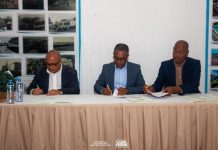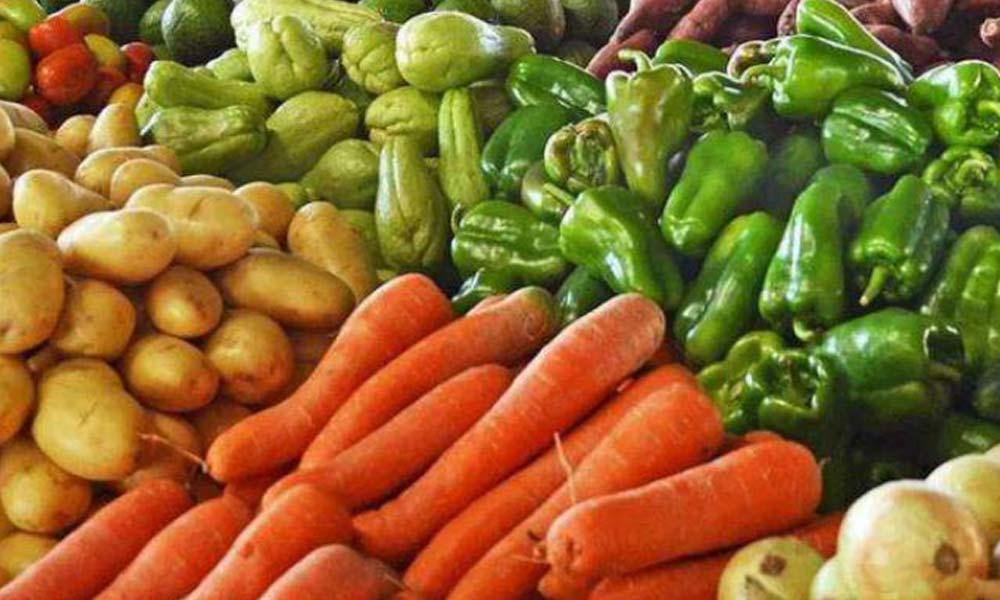
Africa-Press – Cape verde. What has made agriculture in Santo Antão an “art of impoverishment”, as the mayor Orlando Delgado, from Ribeira Grande, defended a few days ago, is not only the embargo, but also the lack of rooted, structured work in the sense of looking for solutions to the plague of the thousand-feet on the island of the mountains. This is what agronomist Daniel Xavier da Luz defends, heard by A NAÇÃO, by the way.
For Daniel Xavier da Luz, who was delegate of the Ministry of Agriculture in Porto Novo, between 2012 and 2016, and who speaks to this newspaper in a personal capacity, as a technician, lifting the embargo, only through decree, is not the solution for the thousand-foot plague in Santo Antão.
In fact, this plague has been affecting agricultural production on that island for over 40 years, accusing that mayor of lack of political will to solve the problem that, in his view, has strangled the economy of Santo Antão.
In the first place, defends Xavier, it is necessary to work from the bottom to the top, to develop a value chain for products from Santo Antão. It passes, from the outset, through the organization of producers.
The Post-Harvest Centre, he said, can be an important contribution to overcoming the embargo issue, along with other solutions, namely the investment and development of the small processing industry.
“For me, the Santo Antão embargo could be a great opportunity for business in the agricultural sector on the island, as it could take advantage of and develop the small processing industry. The embargo does not have to be done only through decrees, there must be alternatives, and, developing this valence of transformation, the island would have no problems”, he analyzes.
According to this agronomist, the embargo cannot simply be lifted, as there is a lot that has to be done “until you get there”, one of which is a necessary transition from political discourse to action. Otherwise, let us know, there is a great risk of the plague spreading to other islands, starting with Santiago.
Organization and working together According to Daniel Xavier da Luz, producers in Santo Antão own small plots of land, ranging from two to four thousand square meters, and it is difficult to find a farmer with one hectare of land.
Therefore, to boost scale resolution, and take advantage of the inspection center’s valences, it is essential that they are organized. But, he also recalls, the island suffers from “other problems”, including the lack of manpower and an improvement in the organization and management of water.
One of the best ways to organize this, understands our interviewee, will be through cooperatives, admitting that this is a change that does not happen “in two days”, taking into account the characteristics of the men and women of Santo Antão.
“It is a work of persistence, training and education for this modality, sensitizing producers to the advantages of working with organization, defining the cooperative model that best suits their needs, and, from there, generating a chain of values ”, he explains. Post-harvest center as a contribution
The Santo Antão Post-harvest Center, which, according to the mayor of Ribeira Grande, is today a “white elephant”, may be, for Daniel Xavier da Luz, who participated in its implementation in 2013, an important contribution to help mitigate the effect of the embargo.
The interlocutor of A NAÇÃO recalls that the Santo Antão center is the only one that carries out the phytosanitary inspection of products, in addition to packaging and treatment, and that it was created precisely with the purpose of helping to circumvent the embargo on the island.
“After several interventions, in 2013, it was possible to open the doors for the first time, in a philosophy of raising awareness, not only of the farmers, but also for the traders themselves”, he recalls.
The service, at the time, according to our source, was free, all packaging material was donated, and the center was managed by the Ministry of Agriculture’s own delegation, in order to raise awareness of the advantages it could bring to the farmers. “All this, taking into account the availability of boats to Boa Vista and Sal, where the products were sent”, he emphasizes.
In short, it was a resource, according to the same source, used by rabidantes who reside in São Vicente and who went to Santo Antão to get merchandise. In this context, he says, “more than 300 tons of products passed through the center, operating on Mondays, Wednesdays and Fridays, with boats available”.
Of the products that underwent inspection, 70% came from Porto Novo, a fact, according to Xavier, to some extent understandable, as it is the municipality that produces the most vegetables. About 19% of products came from Paul and only “more or less” 10% from Ribeira Grande, even though the latter is bigger than Paul”.
Even so, it discards the argument that the location of the center is the reason for this discrepancy in terms of use. What was lacking, in his view, was a work of partnership, on the part of the mayor of Ribeira Grande himself, who “always made a speech that the center did not work”.
“In its implementation, we made a point of inviting him to go there and see that the center was working, in the sense of raising awareness. He should have been a partner, but he didn’t act as a partner. He made a disinformation to the farmers that the center does not work, ”he accuses.
Therefore, he says in conclusion, “the location of the center is a false question”, not least because a study carried out by the then responsible team, to assess the level of people’s satisfaction, “the question was not asked”.
For More News And Analysis About Cape verde Follow Africa-Press

